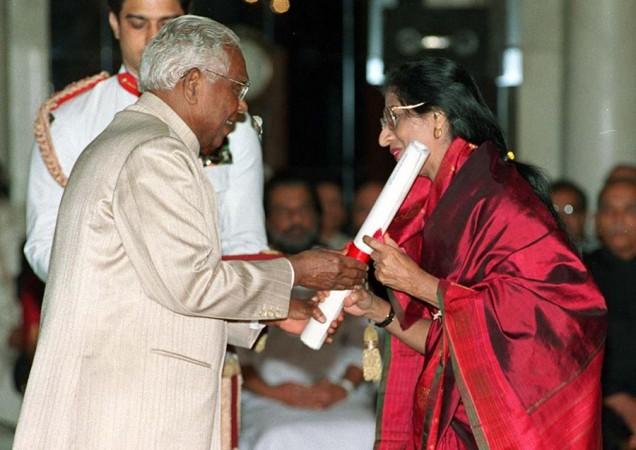
Classical music aficionados across India mourned the loss of Kishori Amonkar, the doyen of Hindustani classical singing, who passed away in Mumbai on the evening of Monday, April 3 — just a week shy of her 85th birthday — after "a brief illness." With it, came the curtains down on an era of Hindustani classical music and the Jaipur gharana of winging, which held their own despite the onslaught from Western and film music.
Also read: Are you suffering from hypertension? Listen to Mozart and Strauss, experts say
Her dead was condoled by a number of people from all walks of life. Prime Minister Narendra Modi said: "Demise of Kishori Amonkar is an irreparable loss to Indian classical music. Deeply pained by her demise. May her soul rest in peace. [sic]" Maharashtra Governor C Vidyasagar Rao and Chief Minister Devendra Fadnavis also expressed grief at her demise.
Here are 10 things you might not have known about the ace Hindustani classical singer:
1. Amonkar's mother Mogubai Kurdikar was also a noted classical vocalist from the Jaipur gharana [school of singing]. She was also Amonkar's first teacher.
2. Born on April 10, 1930, Amonkar would go on to become not only a classical singer noted for her contributions to and innovations in the Jaipur gharana, but also a respected music-theory expert who would often undertake lecture tours. She would also become young students' first encounter in Indian classical music, as quizmasters would often use her vocals in quiz questions.
3. Amonkar lost her voice at least twice due to various reasons, but came back much stronger each time.
4. After her father died when she was just six, her mother brought her and her two siblings up. It was during this time that she learnt music, and would often accompany her mother for performances, where she would play the tanpura.
5. Amonkar also dabbled in Hindi films — most notably in the Vi Shantaram-directorial, Geet Gaya Pattharon Ne in 1964. However, bad experiences within the industry forced her to quit films. She would return, but only once, to add musically to the 1990 film Drishti, directed by Govind Nihalani. It starred Irrfan Khan as a classical singer.
6. Amonkar was been described as "temperamental" to work with during her performances. She would reply later that she wanted to focus on the performance and not mingle with people before it.
7. The singer, among other honours, has been presented with the Padma Bhushan in 1987 and the Padma Vibhushan in 2002 — the third and second-highest civilian honours in India, respectively. With her demise, calls may rise for Bharat Ratna for her.
8. Amonkar was also made a fellow of the Sangeet Natak Akademi in 2010.
9. Amonkar often criticised the idea that techniques of singing must be constrained by the gharana a singer belongs to. This pushed the boundaries of how and by what gharanas — and more importantly the Jaipur gharana itself — was defined.
10. As news of her death spread, people took to searching her most famous songs, and this was the one they searched by name:









